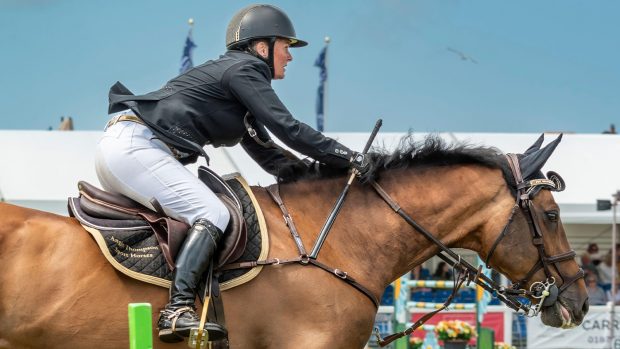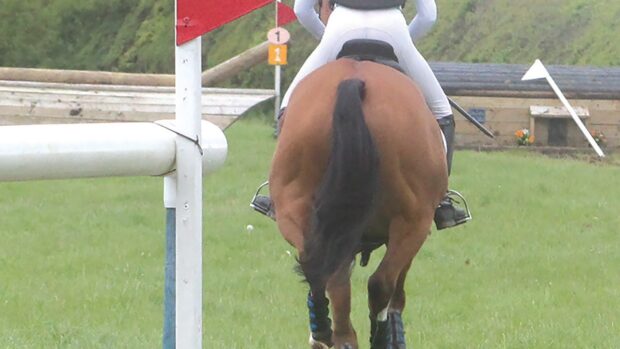A decision by British Eventing (BE) to scrap the “poor value for money” abandonment insurance scheme in the interests of reducing costs for members has sparked strong debate.
Riders and owners could receive no refund at all on entry to events that abandon at the last minute under the new suggested way forward.
The abandonment insurance premium was launched ahead of the 2009 season as a replacement for BE’s abandonment fund. The idea was that competitors would still get refunds when events cancelled, but that BE would no longer shoulder the risk of paying out huge sums.
But the rising cost of the sport has left many questioning whether it was value for money. The rise in the unaffiliated market and BE’s declining membership – its main source of income – mean the organisation is looking for ways to make the cost of affiliated competition more affordable and so more attractive to grassroots riders.
The premium covers formally abandoned events, usually owing to weather conditions, meaning members would still get refunds for situations where organisers pull the plug for reasons such as lack of entries.
The price of abandonment insurance per entry is set to rise from 14.7%, for an 87% refund, to 15.1%, for an 85% refund, in 2022. Statistically, one in eight events abandon per season, and in theory members who competed seven times would be better off without paying the premium even if their eighth event was cancelled.
Scrapping the premium was discussed with the Eventing Riders Association of Great Britain (ERA of GB), including the rider working groups, and the Event Horse Owners Association.
Removing the premium would also partially offset the 6% rise in entry fees for the 2022 season, meaning competitors would be paying less per event.
The notice from BE added that the British Eventing Organisers Association (BEOA) is also in agreement “subject to the broader membership receiving an explanation of its implications and having the chance to comment”. Members were surveyed earlier this year and also had until the end of today (30 November) to submit feedback to BE.
If the premium is canned, minimum refund percentages – depending on exactly when an event is abandoned – would be set by BE. If an event cancelled from 5pm onwards on the day before, it would not be obligated to refund competitors (other than start fees). However, organisers would be able to offer refunds over and above the minimums set by BE should they wish.
British Eventing abandonment insurance: mixed reactions
ERA of GB has come out in support of the decision, reasoning that “this change will not suit every member, however the benefits of decreased cost and freedom of choice outweigh any negatives”.
“A centrally held ‘one size fits all’ policy that is paid for, and compulsory to, BE members which pays for the expenses and profit of an organiser in the event of cancellation cannot be allowed to continue,” said the statement.
“Therefore, ERA of GB and its representatives at all levels have been involved with BE, owners and organisers to create the published policy.
“Riders should not be paying to ensure the profitability of an organiser. The customers of an event should be able to choose if and when they want insurance and not be forced to have a single product run by a single provider.
“The new refund policy makes it less enticing to ‘pull’ an event and we are confident, based on feedback, that BE will be developing a policy of review to make sure cancellation decisions are fair to all and for the good of the sport.
“Ideally that policy would have been for larger refunds to competitors, but a fair balance needed to be found so as not to expose any event financially which must cancel due to weather. This new policy is that best compromise position possible and will be reviewed in 2022 when the policy has been in effect.”
It added that giving organisers the ability to offer more favourable terms of refund “allows a bit of friendly competition”.
“Therefore those organisers that offer their customers, you the riders, better customer service may end up with more customer loyalty and all at a cheaper price,” it concluded.
While some riders have shared approval for the change on social media, others are less happy, questioning where they stand as consumers paying for a service (in this case, an event) that does not go ahead.
Cumbria Horse Trials is among the stakeholders to come out in opposition to the change believing a “widespread consciousness” had not been “canvassed or even proven”.
“Further, the BEOA were asked to present a fully scaled refunding policy reaching back to ballot date, a no-profiteering agreement and to source their own insurance cover where they believe this essential and absorb such a cost,” said a statement from the event.
“Perhaps most significantly, there are many organisers generally of the opinion entry insurance, even at a relatively high percentage premium, represents a cornerstone of the security of the fixture process. “Cumbria Horse Trials believe the peace of mind insurance offers for entrants and the mitigation of everyone’s disappointment in the event of abandonment is crucial for the sport.
“We also believe there will be many unintended consequences if insurance is now no longer available, such as later entering and the imposition on entrants to then pay late entry fees. The knock-on effect on those peripheral events who take marginal entries yet have similar set-up costs to many capacity events, will make them unviable and therefore potentially cause them to become defunct. British Eventing says it is committed to grassroots eventing and its distribution nationwide.”
The statement added that Cumbria Horse Trials has not experienced the migration of grassroots members to unaffiliated events, suggesting reasons why this could be the case elsewhere, and encouraged its followers to share their opinions with BE.
“We fully appreciate lower entry fees are desirable, and the cost of living, inflationary pressures, and costs specific to the sport such as timber and energy are all rising fast,” it added.
Sliding scale
BE’s suggested sliding scale of minimum refunds to replace the current abandonment insurance premium is as follows:
- Start fees will always be refunded regardless of when an event abandons
- Before ballot date – full refund
- Between ballot date to 14 days prior to the start date of the competition – 50% refund
- Between six and 13 days prior to the event start date – 30% refund
- Between five days of the event starting and 5pm the afternoon before – 15% refund
- From 5pm the afternoon before the event day in question – no refund
You might also be interested in:

Major British Eventing shake-up to reverse declining membership and provide better value for money

Eventing abandonment insurance up for review *H&H Plus*

British Eventing entry fees rise 10% for 2009 eventing season
Affiliated one-day event entry fees in 2009 will be up 10% on 2008 prices, to cover the cost of British

Patience rewarded: British Eventing secures refunds for spring fixtures cancelled by lockdown
Eventers whose entry fees for spring fixtures cancelled owing to coronavirus will receive refunds

Subscribe to Horse & Hound magazine today – and enjoy unlimited website access all year round
Horse & Hound magazine, out every Thursday, is packed with all the latest news and reports, as well as interviews, specials, nostalgia, vet and training advice. Find how you can enjoy the magazine delivered to your door every week, plus options to upgrade your subscription to access our online service that brings you breaking news and reports as well as other benefits.



